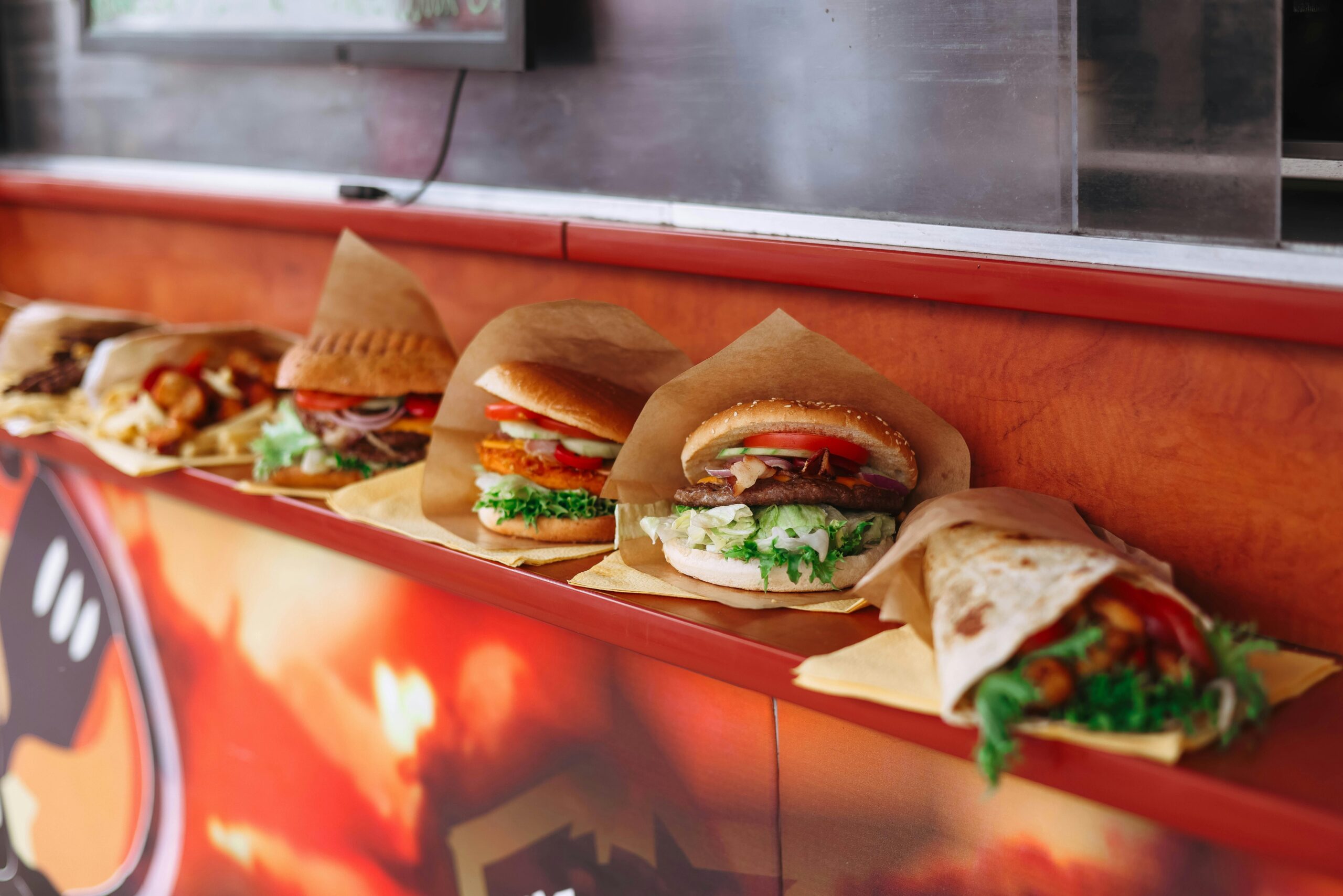What does it take to design a novel system for alternative protein production? Perhaps an aerospace engineer.
Christie Lagally is founder and CEO of Rebellyous Foods (formerly Seattle Food Tech). After a career in aerospace primarily with Boeing Commercial Airplanes as a mechanical engineer, Lagally asked herself how she could contribute to other areas of vital importance in her life.
“I’m a vegan; I care about animals; I care about the environment and human health; and after 15 years in aerospace, I wanted to make a difference in one of these mission-areas I care so much about,” she said in an exclusive interview with The Food Institute.
“Alternative meat, dairy, and eggs is the nexus of all of those areas, and that’s what we’re trying to do at Rebellyous,” she said.
Achieving Price Parity Through Engineering
Lagally said she started a food company to make plant-based meat faster, better, and cheaper than anything else in the market. Hindered by what she saw as a dearth of cutting-edge tools and facilities specifically designed to accommodate plant-based products, she went back to the proverbial drawing board and simply designed new equipment from scratch.
“How do we make plant-based meat affordable? Can we address the quality and cost concerns?” she asked.
The answer was yes. Lagally’s specific background is in mechanical engineering and equipment design applied to industrial environments. More familiar with the process than the industrial products and implements of food production, Lagally said the real leap for her was around food safety and understanding how equipment designed for a food-safe environment functions.
“In other engineering fields I’ve worked in, physics reigns over all,” she said. “In food production, there are some high-bar regulations, and then everything else is empirical.” Lagally said the innate challenges of food production and its facilities are similar to her previous experience regarding contamination, foreign object debris, and other structural challenges in aerospace, yet food adds a biological component absent from the hangars and plants of Boeing Commercial Airlines.
“Being able to take that seriously and bringing it all the way down to the design and build of commercial production equipment is a huge challenge,” she said. Her team ended up rejecting many components from other companies because they felt the design wasn’t sanitary enough and redesigned many other components to meet what she felt were sanitary and efficiency hurdles unable to be leapt.
“There’s a lot of good learning in the food safety realm that has to be applied in the engineering and mechanical realm to be able to be successful in building new automated production equipment for products like plant-based chicken that had never had equipment designed for it in the past,” she added.
“Building equipment for plant-based meat is a good idea, but execution is 90% of the game; the reason we sell product – and the reason we’re a plant-based meat company, and not an equipment company – is that we know our connection to the market is fundamental to the food.”
Lagally knows technology is cool – it’s fun to develop and to see what happens when someone hits the green go button.
“But execution and using that technology is where the rubber meets the road. That’s why we sell product.”
In a few short years from its Seattle-based headquarters, Rebellyous has been able to do just that.
How to Feed Three Million Kids
Today, the main market for Rebellyous is school districts and cafeteria-type institutions. Rebellyous launched in February 2020 at the onset of the pandemic and experienced an immediate delay of almost 18 months in its primary market distribution.
“For a while, all we had was retail, and we learned that market to some degree but it wasn’t the ideal one to make high-volume, low-cost plant-based meat,” Lagally said. “We want to be in institutional foodservice like the public school system.”
Mission accomplished – today, plant-based chicken from Rebellyous Foods can be found in over 200 major school districts and reaches over three million kids coast to coast. Rebellyous employs five salespeople whose territories span the nation and, in her view, “we’re near price parity in this market and proving plant-based meat has a lot going for it.
“Price matters a lot; quality matters a lot; kids won’t eat it if they don’t like it. We’re not a brand company – we’re a product company making plant-based meat faster, better, and cheaper. The school market is ideal for our company and our business model.”
Achieving Mach Speed with the Mock 2
Lagally says her team is on the precipice of refining its second-gen production facility and components – the Mock 2. Compared to most alt-protein facilities and infrastructure, Lagally knows these numbers are within sight for her bespoke food production system:
- 90% reduction in production workforce costs through automation
- 10% reduction in energy costs by eliminating the need for a chilled environment
- 1/3 of the footprint on the production floor vs. current production methods
- 1/4 reduction in sanitation staff, reducing labor costs further
- 90% reduction in material waste through continuous production
- 100% elimination of re-work for work-in-progress
“Right now we’re building the system to meet those metrics,” she said. “Deployment is 90% of the game and those numbers are estimates of what we can achieve. Our next goal is to show it in a commercial environment, and our Mock 2 system will be capable of doing exactly that.”
The Mock 2 more directly addresses the fundamental problem in contemporary alternative protein production – many companies are using yesterday’s tools for tomorrow’s solutions in this segment.
“When using the right tools for the job, you’re so much more efficient, and it begs the question, why did we use the wrong tools?”
Lagally said many alt-protein manufacturers use traditional meat production tools in traditional meat processing facilities with off-the-shelf bowl choppers, tumblers, and fryers. “Using those implements means you’re using subtractive or deconstructive manufacturing tools to make an additive manufacturing product…plant-based meat is just breadmaking without the starch. It’s just a protein and oil from a plant emulsified in the right way, kneaded in the right way, added in the right way. All of those steps are critical and they simply don’t work that well in meat processing facilities – we’re the first company that has developed equipment for the fundamental, ideal steps for making plant-based meat. And that’s where our huge production efficiencies come from.”
Lagally characterized this challenge as juicing a lime by hand instead of simply running it through a juicer. “When you have the right tool for the job, it’s a game-changer.”
She also said the right tools are often not the flexible tools. “Today’s tools can be used to make chicken, hot dogs, falafel, applesauce, and more…they can make many products but not very efficiently,” she said.
The automation of chicken production since the early 60s hasn’t changed very much – it’s highly efficient, and that’s why chicken is cheap.
“You trade flexibility for high-efficiency automation,” she said.
In the world of alternative protein production, perhaps that narrative is changing.
Funding Alternative Protein
It’s no secret that venture capital for many food companies has dried up in the past 18 months.
“There’s a lot of pushback for funding plant-based or alternative meat companies with venture capital, but when venture capital leads to IP for executable tech and products in the market, you have something,” she said.
“We can develop the tools necessary to bring down the price, lower the margins, and bring a product to market.” (For its part, Rebellyous counts Clear Current Capital, Fifty Years, Liquid 2 Ventures, CPT Capital, Agronomics, Vulcan Capital, and KBW Ventures as some of its primary investors.)
“I want to go on record saying we desperately need cultivated meat,” she said. “This country needs it, this planet needs it, the animals need it, humans need it, and to expect cultivated meat companies to go to market in three years is irrational at best.”
Lagally believes cultivated meat is a huge step forward, and making it to market is a huge accomplishment, citing UPSIDE Foods and GOOD Meat as other pillars within the industry. She knows it will take time for other companies to scale up and produce more product, but, “I hold our company accountable for getting to market; the onus is on understood products to do that – meanwhile, for novel products, it’s going to take a while, and we should still invest in those companies.”
And it’s not just venture capitalists investing in alternative protein; federal governments around the world are doing the same. On the heels of the COP28 Climate Summit, the U.K. government pledged £2 billion to fund R&D and infrastructure of engineering biology in alternative protein. Denmark has also committed over $100 million (675 DKK) to promote plant-based food until 2030 after publishing the world’s first national action plan for plant-based foods.
Every action, however, has an equal reaction. In November, the parliamentary government of Italy approved a law banning the use of laboratory-produced food and animal feed, prohibiting the use, sale, import, and export of food and feed “from cell cultures or tissue derived from vertebrate animals.”
And in the U.S., Florida House Representative Tyler Sirois (R) introduced House Bill 435 to ban cultivated meat products in the state.
As in science, nothing is certain until it is, especially in this wild sector of foodbev.
“If This Is So Important, Why Hasn’t It Been Done Before?”
That’s the no. 1 question Lagally is ready to put behind her.
“The answer is it takes a while for an industry to mature before automation makes sense,” she said. “We automate things that are too hard or unsafe for people to do. Plant-based meat hasn’t been too hard for people to do until recently, and as a result we haven’t automated it until recently.”
She said Rebellyous is the only company she knows of addressing the logistical, biological, and production aspects of alternative protein production from the ground up.
“Why has no one ever done this before? Because we didn’t need to make enough plant-based meat before now.
“There hasn’t been economic motivation, either; if we don’t continue to refine alternative protein production, we are going to have serious climate and economic consequences.
“When you reach a point where you need a lot of plant-based meat, and it needs to be quality at scale, and it must be produced from one location, and also need price parity, what are you going to do? And how are you going to do it?”
Lagally said plant-based meat now accounts for 0.5% of all meat in the U.S., and that’s five times the volume from just a few years ago.
“And now people aren’t asking me the why question. We know why.”
She also knows a 3D printer isn’t going to feed the Austin-area school districts at scale in a reasonable manner of time at a competitive cost. But she believes Rebellyous can.












